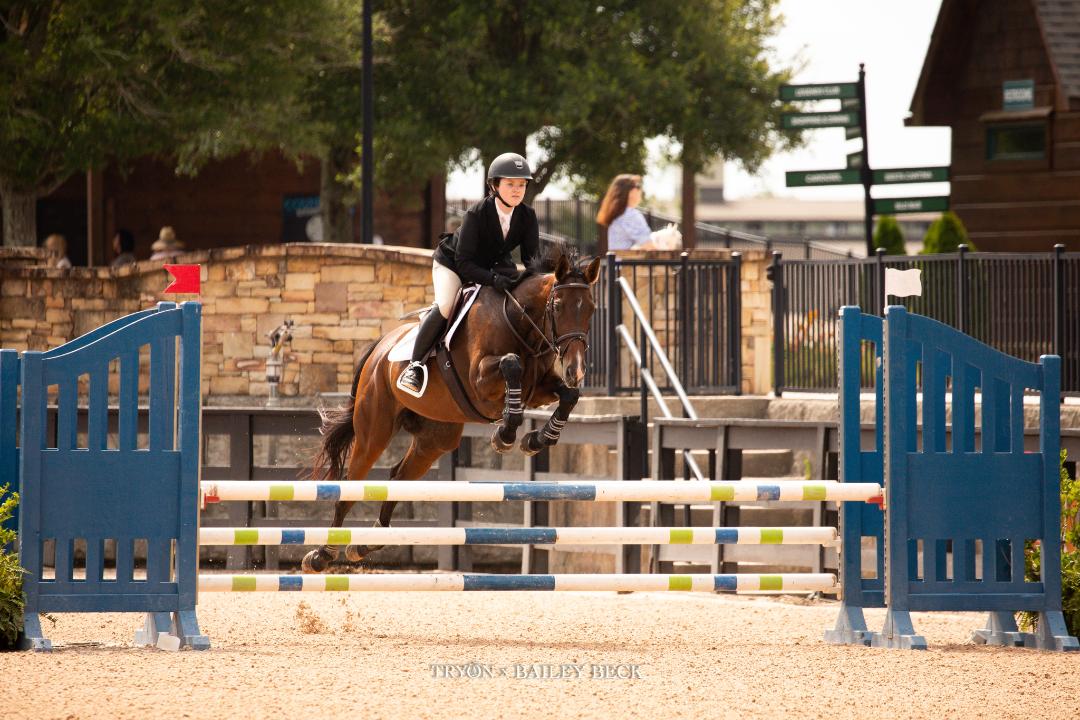Practice In-Task Silence

Last weekend, Feliks rode his new horse, Rigby, at the Tryon International Equestrian Center (TIEC). It was his first “rated” show. I don’t really fully know what that means, but it sounds important and Feliks was nervous and so happy to be there. I drove him down last Thursday – it’s about 50 minutes from where we live – and we got him (and Rigby) settled. The show lasted until Sunday.
But first, about 20 minutes into that first drive, Feliks turned and yelled, “I forgot my saddle!” I thought he was joking because we had made and printed packing lists for his tack trunk. But he had, in fact, forgotten his saddle. He was mortified that he would have to tell his trainer. “What will I tell her?” he said to me as I exited the highway to go back and get his saddle. “You will tell her the truth,” I said. “And it will be a great story: ‘remember that show in Tryon when Feliks forgot his saddle?’ It isn’t really a good story if we just drive to Tryon without some kind of obstacle. It’s the obstacle that actually makes the story come alive.” And then I focused on making him laugh; we got the saddle and continued on our way.
During the weekend, I watched Feliks and his trainer, who also rode in the show, and I watched other trainers there. Here is part of what I wrote on Facebook about that:
If you are in a young person’s life, especially as a coach or mentor, please never underestimate the impact you can and do have on their lives by the actions you take.
By asking Feliks to ride one of her horses in the last class of the show this past weekend, his trainer gave up her own chance for a ribbon and points. And she also demonstrated great trust to ask him to ride a horse in competition that he had never ridden before. And just by inviting him to ride in the show at Tryon in the first place, she demonstrated confidence in him and made him see himself in a new light.
Then she made it clear he could fulfill his desire for a working student role with her at the barn. And then she suggested a next step for him educationally and with horses that he is really excited about.
Sometimes parents cannot do or see for their kids what others can.
I was also reminded by a friend that we started all this by buying a horse we couldn’t afford. Financially ridiculous leaps o’ faith are my specialty, evidently.
His trainer was in direct contrast to another trainer in Tryon who constantly yelled at her young riders in the ring — the entire time they were riding. If I had been riding, I wouldn’t have been able to think with the constant barrage. Loud, constant, bullying. And cursing the riders when they did badly. Had I been one of her parents, my child would have ridden just once with that kind of assault before I addressed it and left the barn with my child and horse in tow.
Night and day. We all have the option to be the kind of coach that Feliks has.
Here is some of what I learned about good trainers, coaches, mentors, teachers:
- They look for challenging opportunities for themselves and their students—growth opportunities, not show-off opportunities;
- They make sacrifices that will challenge their students—and that they themselves don’t know will go well or not;
- They reinforce their trust in their student/child with their actions—in the barn and in the ring;
- They think ahead—looking for ways to learn about and help their students with their goals; and
- They practice in-task silence.
About that last one … My friend Johnnie Moore responded to my Facebook post about that loud trainer with a story and phrase I adore:
“I watch the rowing coaches here in Cambridge, who cycle along the towpath as their crews make their way along the river. Amazing how many of them are shouting almost constantly, which I’m not sure is helpful. A relation who is a sports coach who has studied the art more carefully says there’s a phrase for one of the most valuable roles of an effective coach: ‘in-task silence.’”
We all need—and deserve—in-task silence. It is an expression of trust in your student or child’s ability to think for themself. It puts the focus not on you, but on them, where it should be.









